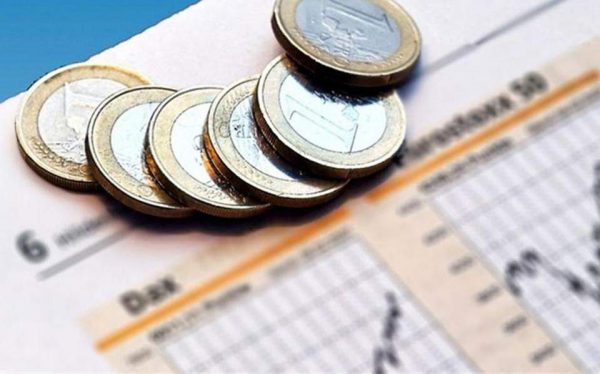
In the post-pandemic era, the Greek economy presents two main characteristics: Resilience to endogenous and exogenous challenges and growth compared to the Eurozone average. Indeed, after gaining in 2021 what it had lost in 2020 amid the pandemic, in 2022 GDP growth was 5.9% while in 2023 an increase of 2.5% is expected, rates more than double the previous year. of the Eurozone. Despite inflation, especially in food, despite catastrophic fires and floods and despite the war in Ukraine, the Greek economy is holding up more than the economies of much stronger countries in Europe.
The resilience and growth of the Greek economy seems to be linked to a significant degree with tourism development. Tourism contributes about 20% of the primary GDP. However, the secondary consequences of tourism development are extremely important: investments in catering and hotel units and employment in many professions (engineers, skilled workers, craftsmen, laborers, lawyers, notaries, real estate companies, hotel professions, etc.). Thus, part of the increase in employment is due to tourism (unemployment from 17.5% in 2018 decreased to 10.9% in 2023).
Of course, tourism is a precarious economic activity and, therefore, the parallel development of manufacturing and the agri-food sector is necessary. The government’s effort is directed in this direction, in particular by encouraging investments mainly in the green economy with the assistance of the Recovery Fund (an amount corresponding to 6% of GDP has already been disbursed), but also by strengthening the confidence of international markets and therefore the increase of foreign investments in Greece, especially after the performance of the investment grade by major international rating agencies.
In addition, the good course of general inflation in the EU and Greece (Sept.23 – 1.6% excluding food 9%) seems to distance the increase in interest rates from the ECB, with positive effects on the growth dynamics of the Eurozone. If its major economies recover, then Greek exports to the Eurozone will increase again, as they have been decreasing in recent months with the risk of the current account deficit increasing again (currently around 8% of GDP)
These positive developments, thanks to successful economic policy, are obviously reflected in the performance of government revenues. Thus, without causing a deficit in the Budget, salaries and pensions of civil servants can be increased and at the same time a primary surplus can be created (this year 1.1% of GDP and 2.1% in 2024). At the same time, the percentage of Greece’s external debt in terms of GDP in current prices also decreases significantly (from 207% of GDP in 2020 to 166% of GDP in 2023).
Overall, the resilience and growth demonstrated by the Greek economy has results in the level of productivity, i.e. in the increase of product per worker, which allows for an increase in wages and is a key objective of the government, with special provision for vulnerable population groups. One hopes, that this very good picture of the Greek economy will not be overshadowed by the clouds of the war that has broken out in Israel.
Napoleon Maraveyas
Professor of European Political Economy, National and Kapodistrian University of Athens
Jean Monnet European Headquarters
Former Minister, FormerVice-Chancellor of EKPA
Latest News

German Ambassador to Greece Talks Ukraine, Rise of Far Right & Tariffs at Delphi Economic Forum X
Commenting on the political developments in his country, the German Ambassador stressed that it was clear the rapid formation of a new government was imperative, as the expectations across Europe showed.

Athens to Return Confiscated License Plates Ahead of Easter Holiday
Cases involving court orders will also be excluded from this measure.

Servicers: How More Properties Could Enter the Greek Market
Buying or renting a home is out of reach for many in Greece. Servicers propose faster processes and incentives to boost property supply and ease the housing crisis.

Greek Easter 2025: Price Hikes on Lamb, Eggs & Sweets
According to the Greek Consumers’ Institute, hosting an Easter dinner for eight now costs approximately €361.95 — an increase of €11 compared to 2024.

FM Gerapetritis Calls for Unified EU Response to Global Crises at EU Council
"Europe is navigating through unprecedented crises — wars, humanitarian disasters, climate emergencies," he stated.

Holy Week Store Hours in Greece
Retail stores across Greece are now operating on extended holiday hours for Holy Week, following their Sunday opening on April 13. The move aims to accommodate consumers ahead of Easter, but merchants remain cautious amid sluggish market activity.

Green Getaway Ideas for Easter 2025 in Greece
Celebrate Easter 2025 in Greece the sustainable way with eco-farms, car-free islands, and family-friendly getaways rooted in nature and tradition.

Civil Protection Minister Details Summer Firefighting Plans at Delphi Forum
At the 10th Delphi Economic Forum, Minister of Climate Crisis and Civil Protection Yiannis Kefalogiannis discussed Greece's plans for the upcoming fire season.

How Shops and Markets Will Operate During Easter Holy Week
The Easter holiday schedule has been in effect since April 10, with retail stores open Palm Sunday, and most supermarkets also operating to meet consumer demand for Easter shopping

Why Is the French Aircraft Carrier Charles De Gaulle in Piraeus?
Docking in Piraeus after a four-month deployment in the Indo-Pacific region, the admiral of the aircraft carrier the Charles de Gaulle says, "Greece is our best partner in the Mediterranean."








































 Αριθμός Πιστοποίησης
Αριθμός Πιστοποίησης